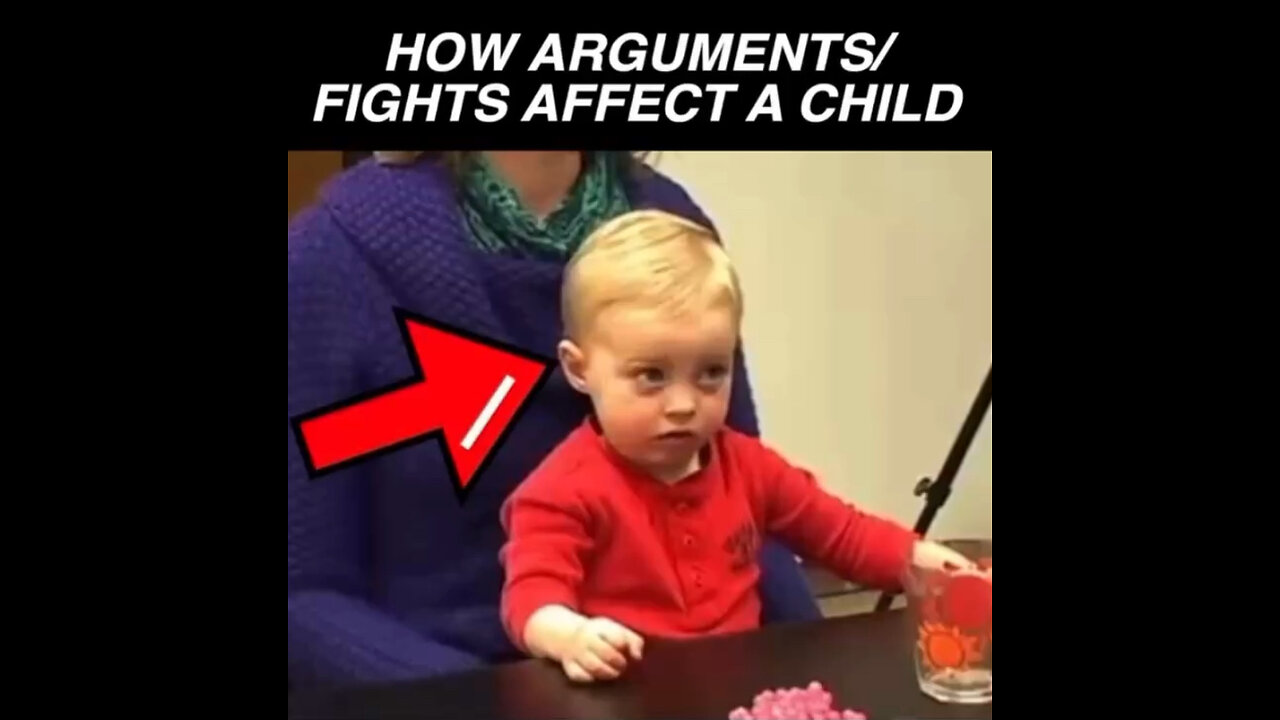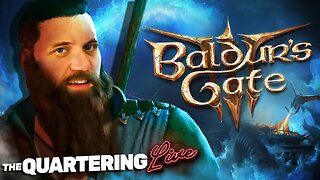Premium Only Content

The Hidden Impact of Adult Conflict on Child Development: Beyond the Obvious
Introduction: The Invisible Threads of Emotional Influence
Children are sponges, absorbing the emotional and social dynamics of their environments in ways that are often invisible to adults. A groundbreaking study from the University of Washington has shed light on just how deeply even minor conflicts between adults can affect young children. This research goes beyond the obvious harm caused by overt violence or neglect, delving into the subtle yet profound ways that emotional tension and arguments shape a child’s developing mind and behavior.
This article explores the implications of this study, providing deep insights into how early environmental factors influence children’s emotional and psychological development. We will also examine alternative perspectives, considering how these findings intersect with evolutionary psychology, epigenetics, and the role of modern parenting practices in mitigating these effects.
1. The Study: How Arguments Shape a Child’s Emotional Landscape
1. The Experimental Design
• The study observed 15-month-old children in controlled scenarios. Initially, the child was placed in a calm environment with a supportive adult interaction, allowing them to explore toys freely and confidently.
• In the second scenario, an adult entered the room and engaged in a mild but negative interaction, such as an argument or criticism. The child’s behavior shifted dramatically—hesitation, withdrawal, and cautiousness replaced the previous sense of safety and exploration.
2. Key Observations
• Emotional Sensitivity: Even mild disagreements between adults were enough to disrupt the child’s sense of security.
• Behavioral Changes: The child became less engaged with their environment, more guarded, and hesitant to explore or interact freely.
• Implications: This hyper-awareness of emotional conflict indicates that children are finely attuned to the social dynamics around them, even when they may not fully understand the content of the disagreement.
2. The Psychological Mechanisms at Play
1. Hyper-Vigilance in Early Childhood
• Young children are biologically wired to monitor their environment for signs of safety or danger. This sensitivity is an evolutionary adaptation, ensuring that they remain close to caregivers and avoid potential threats.
• Emotional conflict between caregivers can activate a child’s stress response system, even in non-violent scenarios. This hyper-vigilance diverts cognitive resources away from learning, exploration, and social engagement.
2. Emotional Regulation and Mirror Neurons
• Children’s developing brains rely heavily on social modeling. Mirror neurons, which allow children to mimic and internalize the behaviors and emotions of those around them, are particularly active in early childhood.
• When adults display anger, frustration, or hostility, children often internalize these emotions, shaping their own behavioral patterns.
3. The Stress Response and Brain Development
• Repeated exposure to conflict activates the hypothalamic-pituitary-adrenal (HPA) axis, releasing stress hormones like cortisol.
• Chronic activation of the stress response can disrupt neural development, particularly in areas like the prefrontal cortex (responsible for decision-making and emotional regulation) and the amygdala (involved in processing fear and anxiety).
3. Long-Term Effects: Behavioral and Emotional Disorders
1. Behavioral Disorders
• Children exposed to frequent conflict are at a higher risk for conditions like ADHD, aggression, and oppositional defiant disorder.
• These behaviors may stem from a hyperactive stress response system, making it difficult for the child to regulate their emotions or focus on tasks.
2. Emotional Disorders
• Anxiety, depression, and even bipolar disorder have been linked to early exposure to conflict and emotional instability.
• These conditions often emerge when a child internalizes the stress and unpredictability of their environment, leading to feelings of insecurity and low self-worth.
3. Attachment and Social Skills
• Conflict disrupts the formation of secure attachments, which are foundational for healthy social and emotional development.
• Children who grow up in environments of conflict may struggle with trust, communication, and forming healthy relationships in adulthood.
4. An Alternative Perspective: Evolutionary and Epigenetic Insights
1. The Evolutionary Role of Conflict Awareness
• From an evolutionary standpoint, children’s sensitivity to conflict may have been a survival mechanism. In ancestral environments, detecting discord within the group could signal danger, prompting the child to stay close to caregivers or avoid potential threats.
• However, in modern settings where survival is less immediately threatened, this hyper-vigilance can become maladaptive, leading to unnecessary stress and developmental disruption.
2. Epigenetics: How Environment Shapes Biology
• Emerging research in epigenetics shows that environmental factors, including emotional conflict, can alter the expression of genes related to stress regulation, emotional processing, and resilience.
• These changes can have intergenerational effects, meaning that the impact of conflict in one generation may influence the developmental trajectories of the next.
5. Practical Applications: Creating Positive Environments
1. Modern Parenting Practices
• The study underscores the importance of fostering positive, nurturing, and stable environments for children. Modern parenting approaches that emphasize emotional regulation, open communication, and consistency can mitigate the negative effects of conflict.
2. Conflict Management Strategies
• For Parents: Learning to resolve disagreements calmly and respectfully in the presence of children can demonstrate healthy conflict resolution and minimize stress.
• For Educators: Schools and daycare centers can play a role by providing supportive environments that counterbalance stressors at home.
3. The Role of Community and Policy
• Broader societal support, such as access to mental health services, parenting education, and conflict resolution programs, can empower families to create healthier environments for their children.
6. A Call for Mindfulness: The Power of Small Actions
1. Awareness of Influence
• Adults must recognize that even seemingly minor conflicts can have a profound impact on a child’s emotional and psychological state. Small moments of tension can ripple outward, shaping how children perceive the world and their place in it.
2. Building Emotional Resilience
• Teaching children emotional regulation and resilience from an early age can help buffer them against the negative effects of conflict. This includes modeling positive behaviors, validating their emotions, and fostering a sense of safety and trust.
3. The Ripple Effect
• Positive environments have ripple effects as well. By cultivating harmony, patience, and understanding, adults can create a foundation for children to thrive emotionally, intellectually, and socially.
Conclusion: Beyond the Research
The University of Washington’s study highlights the profound sensitivity of young children to their environment, revealing how even brief moments of conflict can disrupt their development. However, this understanding should not lead to despair—it is a call to action. By cultivating awareness, fostering emotional intelligence, and creating nurturing environments, adults have the power to shape the next generation in profound and positive ways.
The insights gleaned from this research remind us that every interaction matters, and small acts of kindness, patience, and love can counterbalance the stresses of modern life. In this way, the study is not just a warning about the impact of conflict—it is a hopeful testament to the transformative power of care and compassion.
-
 29:46
29:46
FragmentsOfTruth
5 days ago🜏 Colossus in the Cliffs: Membranes, “Mud Fossils,” and the Parasites That Outlived Titans
3111 -
 LIVE
LIVE
Lofi Girl
2 years agoSynthwave Radio 🌌 - beats to chill/game to
227 watching -
 4:34:26
4:34:26
Akademiks
6 hours agoICEMAN EPISODE 3
128K -
 2:04:10
2:04:10
Inverted World Live
8 hours agoThe Robots Are Here | Ep. 103
61.6K14 -
 1:21:53
1:21:53
Man in America
16 hours agoInflation, Debt & War: The 2032 Crash Cycle Is Here—Nations Will FALL w/ Martin Armstrong
58.1K20 -
 1:53:48
1:53:48
Adam Does Movies
15 hours ago $3.13 earnedTalking Movies + Ask Me Anything - LIVE
24.1K2 -
 2:55:43
2:55:43
TimcastIRL
7 hours agoTrump DOJ To Ban Trans People From Owning Guns After Catholic School Shooting | Timcast IRL
181K112 -
 3:21:36
3:21:36
The Quartering
7 hours agoBaldur's Gate 3 First Playthrough!
46.5K8 -
 6:34:42
6:34:42
Rallied
9 hours ago $9.03 earnedWarzone Solo Challenges
76.1K2 -
 57:40
57:40
MattMorseTV
8 hours ago $11.99 earned🔴Trump just SHATTERED the RECORD.🔴
54.2K90